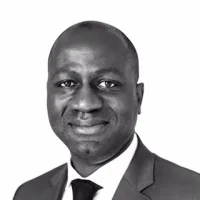Stopping the spread: A citizen’s engagement
28 April, 2020
The opinions expressed in this article are solely those of the author, and do not necessarily reflect the opinions or views of the Mo Ibrahim Foundation. This article was first published in The Cairo Review of Global Affairs on 15 April 2020.
Africa is no stranger to recent outbreaks and therefore has a foundation to combat the coronavirus, but more must be done to ensure the informal economy is included in a comprehensive strategy to beat COVID-19.
The COVID-19 storm will eventually pass. But, if any early lessons are to be learnt from the pandemic, it is that African citizens with disposable resources such as income, time, and knowledge must work with their governments to reset the relationships with the most vulnerable in their communities and together combat the virus’ spread and any future diseases.
The social and economic effects of the COVID-19 pandemic will be far-reaching. Thus, the consequences of the current measures to stop the spread and to flatten the curve are to limit the pressure on Africa’s healthcare system in rural and urban areas. These measures will have disproportionate effects on our society. Physical distancing puts pressure on the socioeconomic arrangements of markets and informal traders. It thus potentially puts able citizens between the virus and hunger. African governments and citizens have been sensitive to these specificities. In Togo, the government – through novissi, meaning 'solidarity' in local dialect – enabled digital cash transfers as a safety net mechanism. Food distribution in Uganda and Ghana, for example, is designed to limit exposure to the virus by replacing women’s commutes to the market.
This pandemic is redefining local economies, but it also gives us an opportunity to rethink a community’s journey to access services. The journey from informal to formal economies need not be just about transforming the market into a mall. Physical distancing and lockdown measures demonstrate that food supplies and affordability are vital to stop the spread of the virus. With Africa’s $65 billion food import and 60 percent of the African population engaged in agriculture, redirecting these resources for internal production and safe distribution channels will provide an internal mechanism to strengthen the delayed African Continental Free Trade Area.
As the number of COVID-19 cases continues to rise in Africa, at stake is how we care for the most vulnerable; they represent the strongest links between the African economies. Though they do not have a social safety net, they work to ensure that offices, malls and markets are clean. They trade goods and services indispensable for the commute of civil servants and other office-bearers stuck in their private or public means of transportation. Furthermore, informal markets maintain a food supply value chain between rural and urban areas.
Thus, when Africa beats the virus, it must ensure the intactness of a newly established foundation which considers thinking about vulnerable communities an essential approach to economic transformation.



